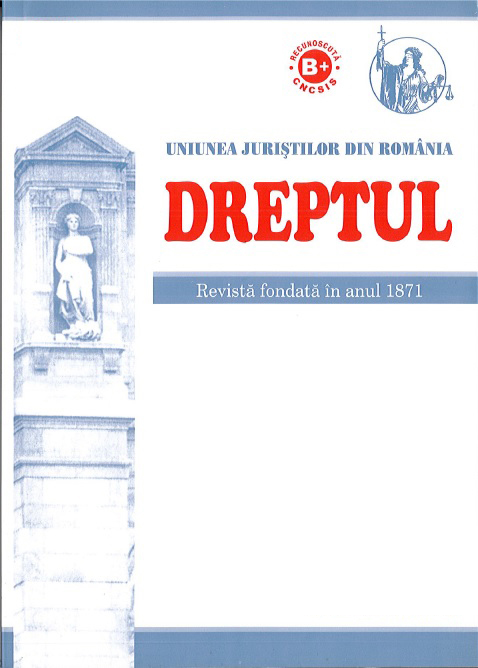In this study, based on solid historical and legal documentation, the author argues that the completion of the Romanian unitary national state in 1918 was achieved during a long process of unification: first, the Romanians from the two main countries, Muntenia and Moldova, were united in 1859 in a national state, and then, those from other Romanian historical provinces, which were illegally encroached in the borders of neighbour empires, acted with perseverance for the accomplishment of their national and state unity. The study is divided into four distinct parts. In the first part, the author presents, based on documents, testimonies and memoirs, the idea of Romanian national and state unity as an essential coordinate of the history of the Romanian people. The acts of unification of the Romanian historical provinces with the Romanian Kingdom have legal base on the principle of nationalities and their right to free determination, rights recognized by the victorious powers of the First World War as a basis for solving the territorial aspects generated by the dismantling of the Austro-Hungarian Monarchy and the Tsarist Empire. The acts of union, carried out by popular will expressed in large representative national assemblies, were ratified by acts of national sovereignty by the Romanian State and recognized as such by the 1919–1920 Peace Conference in Paris. The second part emphasizes on the constitutive character of the acts of union with Romania, voted by the constituent national assemblies of Bessarabia, Bukovina and Transylvania during 1918. The article contains documentary data and information about the national liberation movement of Romanians from the three provinces, Bessarabia, Bukovina and Transylvania, and the actions taken for their unification with the Kingdom of Romania at the end of the First World War. In each of the three Romanian historical provinces, various assemblies in which the participants declare their determination for union were formed. The Moldavian Soldiers’ Congress, attended by 800 delegates, represented a large representative body of all social strata and ethnic groups in Bessarabia. The Congress delegates voted for the political and territorial autonomy of Bessarabia. The Congress also decided to establish the council of the country, a parliamentary body made up of representatives of all the nationalities existing on the territory of Bessarabia. On 14/27 March 1918, the council of the country adopted a resolution in which was proclaimed solemnly the eternal union of Bessarabia „with the mother Romania”.


